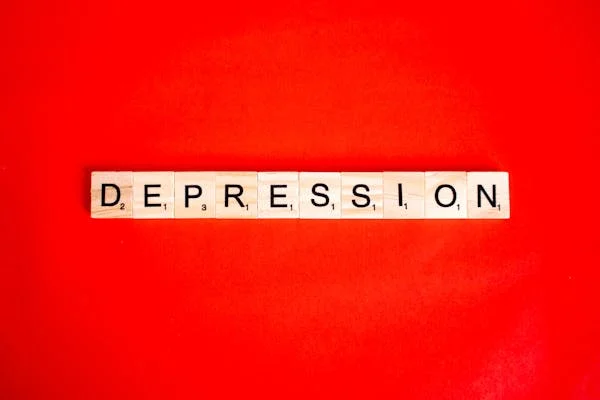Social media contests are a fantastic way to engage your audience, attract new followers, and create buzz around your brand. They can increase your reach, drive traffic, and even boost sales if done correctly. But how do you create a winning social media contest that stands out and delivers results? In this article, we’ll explore essential tips and tricks to help you run successful social media contests that your audience will love.
Understanding Your Goals

Know What You Want to Achieve
Before you start planning your contest, it’s crucial to know what you want to achieve. Are you looking to increase brand awareness, grow your follower count, boost engagement, or drive sales? Having a clear goal will help you design a contest that aligns with your objectives and measure its success accurately. For instance, if your goal is to increase engagement, focus on contests that encourage interaction, such as photo or caption contests.
Align Your Contest with Your Brand
Your contest should reflect your brand’s personality and values. Whether you’re fun and quirky or professional and sophisticated, your contest should be a natural extension of your brand. This alignment ensures consistency in your messaging and helps attract the right audience.
For example, a fitness brand might run a photo contest encouraging followers to share their workout photos, reinforcing its identity and connecting with health-conscious individuals.
Dive Deeper into Goal Setting
As a startup founder, understanding your goals requires a strategic approach that goes beyond surface-level acknowledgment. It is essential to clearly define and break down your goals into actionable and measurable components.
For example, if your primary goal is to increase brand awareness, determine specific metrics such as the number of new followers or impressions you aim to achieve. Instead of aiming for a vague increase in followers, set a target like growing your follower count by 20% or gaining 10,000 new impressions.
Analyzing your target audience is crucial in shaping your contest goals. Conduct thorough research to identify what resonates with them, what type of content they engage with, and what motivates them to participate. Use insights from your social media analytics to tailor your contest to their preferences and behaviors. By aligning your contest with the interests and needs of your audience, you enhance the likelihood of achieving your goals.
Create SMART Goals
To ensure your goals are effective, make them SMART: Specific, Measurable, Achievable, Relevant, and Time-bound. Specific goals clearly define what you want to achieve, such as increasing engagement by 30% within a month. Measurable goals allow you to track progress and assess success.
Achievable goals are realistic and consider your current resources and capabilities. Relevant goals align with your broader business objectives and ensure that your efforts contribute to your overall strategy. Time-bound goals have a clear deadline, which helps maintain focus and urgency.
Prioritize Your Goals
In the context of a startup with limited resources, it’s essential to prioritize your goals. Focus on one or two primary objectives for each contest to avoid spreading your efforts too thin. For example, if your primary goal is to boost engagement, concentrate on creating highly interactive content and encourage user participation. Secondary goals, such as increasing brand awareness or driving sales, can still be pursued but should not detract from your main objective.
Develop a Success Metric Framework
Establish a framework to measure the success of your contest. Define key performance indicators (KPIs) that align with your goals, such as the number of entries, likes, shares, comments, or new followers. Set benchmarks for these KPIs based on historical data or industry standards. This framework will help you monitor progress in real-time and make data-driven decisions to optimize your contest strategy.
Prepare for Post-Contest Analysis
Planning for the post-contest phase is as crucial as the contest itself. Decide in advance how you will analyze the results and what metrics will determine success. This analysis should include both quantitative data, such as engagement rates and follower growth, and qualitative feedback from participants.
Use this information to identify strengths, areas for improvement, and actionable insights for future contests. By systematically evaluating your contest’s performance, you can refine your strategy and achieve better results in subsequent campaigns.
Align with Broader Business Objectives
Ensure that your contest goals are not isolated but integrated into your broader business strategy. For instance, if your startup is launching a new product, align your contest to create buzz and drive interest around this launch.
This alignment ensures that your contest efforts contribute to your overall business growth and brand development. Regularly review and adjust your goals to stay aligned with your evolving business objectives and market conditions.
Foster Team Collaboration
Involve your team in the goal-setting process to gain diverse perspectives and foster a sense of ownership. Collaborate with your marketing, sales, and customer service teams to align the contest goals with their objectives and leverage their expertise. This collaborative approach ensures that your contest is well-rounded, addresses various aspects of your business, and maximizes its impact.
Choosing the Right Type of Contest
Video Contests
Video contests can be highly engaging and offer a deeper connection with your audience. They require more effort to enter, which often results in higher-quality submissions. For example, if you run a beauty brand, you could ask participants to create a tutorial using your products. The key is to make the prompt clear and the prize enticing enough to justify the effort.
Encourage participants to upload their videos to platforms like Instagram, TikTok, or YouTube, depending on where your audience is most active. This not only increases engagement but also enhances your brand’s visibility across multiple platforms. Ensure you provide guidelines on video length, content, and how to use relevant hashtags to track entries effectively.
Hashtag Contests
Hashtag contests are a powerful way to increase brand visibility and track entries easily. Ask participants to post content using a unique contest hashtag that you create. This method is versatile and can be used for photos, videos, or even written content.
To maximize the effectiveness of a hashtag contest, ensure the hashtag is unique, easy to remember, and relevant to your brand. Promote the hashtag extensively before and during the contest to build momentum. Monitoring the hashtag can also provide valuable user-generated content that you can repurpose for future marketing efforts.
Quiz Contests
Quiz contests are interactive and can be a fun way to educate your audience about your brand or industry. Create a series of questions that participants must answer correctly to enter the contest. This format is particularly effective for brands in educational, tech, or complex product industries where knowledge sharing is beneficial.
For startup founders, incorporating product-related questions can subtly educate participants about your offerings while keeping them engaged. Use tools like Google Forms, Typeform, or built-in social media features like Instagram Stories’ quiz stickers to facilitate the contest.
Referral Contests
Referral contests leverage the power of word-of-mouth marketing. Encourage participants to refer friends to enter the contest, rewarding both the referrer and the referred with additional entries or exclusive prizes. This type of contest can rapidly expand your reach and grow your audience organically.
To implement a successful referral contest, make the referral process simple and trackable. Provide participants with unique referral links or codes they can share with their network. Offering attractive incentives for referrals can motivate participants to actively promote your contest.
Creativity Contests
Creativity contests allow your audience to showcase their talents in a way that aligns with your brand. This could be anything from designing a new product logo, creating a piece of artwork, writing a story, or composing a jingle. These contests not only engage your audience’s creativity but also provide you with innovative content ideas and potential new assets for your brand.
Set clear guidelines and criteria for judging entries to ensure fairness and clarity. Promote the contest across multiple channels and highlight some of the best entries during the contest period to inspire others and maintain engagement.
Interactive Contests
Interactive contests like scavenger hunts or live trivia can be highly engaging and memorable. For a scavenger hunt, provide clues that lead participants to find hidden items or codes on your website or social media pages. Live trivia can be conducted via live streaming on platforms like Instagram Live or Facebook Live, where participants answer questions in real-time.
Interactive contests require more planning and coordination but can significantly boost engagement and excitement. They also offer an opportunity to interact with your audience in a dynamic and real-time manner, fostering a stronger community connection.
Strategic Selection and Execution
When choosing the type of contest, consider your target audience’s preferences, the level of effort required to participate, and the potential for user-generated content. The contest should align with your brand’s goals and capabilities. Ensure you have the necessary resources to manage and promote the contest effectively.
To enhance the strategic impact of your contest, integrate it with your broader marketing campaigns. For instance, if you’re launching a new product, design a contest that encourages users to engage with the product. Use the contest as a platform to gather testimonials, reviews, and user-generated content that can be leveraged in future marketing efforts.
Setting Up the Contest
Define Clear Rules
Clear and simple rules are vital for any successful contest. Ensure your rules cover eligibility criteria, how to enter, entry limits, and how the winner will be chosen. Being transparent about these details builds trust with your audience. Clearly communicate these rules on all promotional materials and in an easily accessible location, such as your website or a pinned social media post.
Develop a Comprehensive Contest Plan
As a startup founder, it’s essential to approach your contest with a well-structured plan. This plan should encompass every detail from concept to execution. Start with a brainstorming session to generate creative contest ideas that align with your brand values and objectives. Once you’ve selected a contest type, map out the entire process, including task assignments, timelines, and contingency plans.
A comprehensive plan ensures that every team member knows their responsibilities and deadlines. This reduces the risk of last-minute issues and ensures a smooth execution. Regularly update the plan and hold progress meetings to address any challenges promptly.
Utilize a Project Management Tool
To streamline the setup process, use a project management tool like Trello, Asana, or Monday.com. These tools help you organize tasks, set deadlines, and track progress. Assign specific tasks to team members, such as content creation, graphic design, or customer support, and monitor their completion in real-time.
Project management tools also facilitate better communication among team members, ensuring everyone is on the same page. Use these tools to store all relevant documents, guidelines, and assets in one place for easy access.
Set Up Tracking and Analytics
Before launching your contest, set up tracking and analytics to measure its performance. Use tools like Google Analytics, Facebook Insights, or third-party platforms to monitor key metrics such as engagement rates, new followers, website traffic, and conversions.
Define what success looks like for your contest by setting benchmark metrics based on your goals. For instance, if your goal is to increase engagement, track likes, shares, comments, and user-generated content. If you aim to drive sales, monitor conversion rates and sales figures. Setting up these analytics in advance allows you to make data-driven decisions during and after the contest.
Legal Considerations and Compliance
Understanding and adhering to legal requirements is crucial for the success and legitimacy of your contest. Research the laws and regulations governing contests and giveaways in the regions where you plan to run the contest. These can vary significantly by country and even by state. Common legal considerations include eligibility restrictions, tax implications, and required disclosures.
Draft comprehensive terms and conditions that cover all aspects of the contest, including entry requirements, prize details, and winner selection processes. Make these terms easily accessible to participants, typically through a link in your contest posts and promotions.
Prepare Your Team
A well-prepared team is essential for a smooth contest execution. Conduct training sessions to ensure that all team members understand the contest rules, processes, and their specific roles. For example, customer support should be ready to handle inquiries and issues, while the marketing team should be equipped to manage promotions and track performance.
Prepare FAQs and response templates for common questions or issues that may arise during the contest. This preparation helps maintain consistency in communication and ensures quick and effective responses to participant queries.

Develop Engaging Promotional Content
Creating engaging promotional content is critical to attracting participants. Develop a variety of content formats, including eye-catching graphics, compelling videos, and informative posts that explain the contest details and how to enter. Highlight the prize and its value to entice your audience.
Use storytelling techniques to make your promotional content more relatable and engaging. Share the inspiration behind the contest, feature behind-the-scenes glimpses of the preparation, and create teaser posts to build anticipation.
Leverage Multiple Channels for Promotion
To maximize reach, promote your contest across multiple channels. Use your social media platforms, email newsletters, blog posts, and website banners. Each channel can target different segments of your audience, ensuring broader exposure.
Consider running paid advertising campaigns on platforms like Facebook, Instagram, or Google Ads to further amplify your reach. Target these ads to specific demographics that align with your contest’s goals. Collaborating with influencers or partners can also extend your reach to new audiences.
Create a Crisis Management Plan
Even with thorough planning, unexpected issues can arise during a contest. Prepare a crisis management plan to address potential problems quickly and effectively. Identify potential risks, such as technical glitches, negative feedback, or disputes over contest rules, and outline strategies for managing them.
Designate a crisis management team and establish clear protocols for communication and decision-making. This plan ensures that your team can respond promptly and professionally to any issues, minimizing their impact on the contest and your brand.
Post-Contest Strategy
Planning for the post-contest phase is as crucial as the contest itself. Determine how you will announce the winner, thank participants, and maintain the engagement momentum. Use this period to collect feedback, analyze the contest’s performance, and identify areas for improvement.
Consider creating a follow-up campaign to re-engage participants, such as offering a special discount, sharing highlights from the contest, or promoting upcoming events. This keeps your audience connected to your brand and sets the stage for future contests.
Engaging Your Audience During the Contest
Foster a Sense of Community
Creating a sense of community around your contest can significantly boost engagement. Encourage participants to interact with each other by featuring user-generated content and highlighting notable entries. Host live sessions where participants can share their experiences, discuss the contest, and ask questions in real-time. This can be done via Instagram Live, Facebook Live, or even a Zoom webinar.
Use these live sessions to provide updates, offer tips, and create a platform for participants to connect. Building a community not only enhances the contest experience but also fosters long-term loyalty to your brand. Encourage participants to share their journey, tips, and advice with others, creating a supportive and interactive environment.
Implement Gamification Elements
Introducing gamification elements into your contest can increase participation and excitement. Create mini-challenges or levels within the contest where participants can earn badges or points. These can be based on the number of entries submitted, the creativity of submissions, or the level of engagement their posts receive.
Offer small rewards or incentives for achieving certain milestones, such as exclusive content, early access to new products, or additional entries into the main contest. Gamification can make the contest more dynamic and engaging, keeping participants motivated throughout the duration.
Collaborate with Influencers
Partnering with influencers can amplify your contest’s reach and engagement. Choose influencers who align with your brand values and have a strong following within your target audience. Have them participate in the contest and share their entries, or even host segments of the contest on their channels.
Influencers can create buzz by sharing behind-the-scenes content, providing personal endorsements, and encouraging their followers to join the contest. This collaboration can add credibility and attract a wider audience, significantly enhancing the contest’s impact.
Utilize Interactive Features
Take advantage of interactive features available on social media platforms to keep your audience engaged. Use Instagram Stories for polls, Q&A sessions, and countdown stickers to build anticipation. Conduct live polls during your live sessions to gather real-time feedback and make participants feel involved in the decision-making process.
Encourage participants to use Instagram’s Reels or TikTok’s short video format to create dynamic and engaging content. These interactive features can keep the contest lively and maintain high levels of engagement throughout its duration.
Highlight Participant Stories

Showcasing participant stories adds a personal touch to your contest and makes participants feel valued. Share user-generated content that tells a story, such as why participants love your brand or how they use your products in their daily lives. This not only promotes engagement but also humanizes your brand, making it more relatable.
Create a series of posts or stories dedicated to highlighting these participant stories. This can encourage others to share their own experiences and join the contest, fostering a deeper connection between your brand and your audience.
Provide Real-Time Updates
Keep your audience informed with real-time updates about the contest. Regularly post updates on the number of entries received, highlight top submissions, and remind followers of important dates and milestones. Use engaging visuals and videos to make these updates more appealing.
Consider creating a dedicated highlight on Instagram or a pinned post on Facebook where participants can easily find all the contest-related information. This keeps the contest top of mind and ensures participants are well-informed and continuously engaged.
Create Collaborative Content
Invite your audience to collaborate on content creation as part of the contest. For example, if you’re running a photo contest, ask participants to submit photos that could be used in a collaborative collage or mosaic. If it’s a video contest, create a compilation video featuring clips from various entries.
Collaborative content not only enhances engagement but also builds a sense of community and shared purpose. It can be a fun and creative way to showcase the diversity and creativity of your audience, making them feel more connected to your brand.
Offer Exclusive Access
As an additional engagement strategy, offer participants exclusive access to content, events, or products. This could include sneak peeks of new products, invitations to virtual events, or access to exclusive webinars or tutorials. Exclusive access can be a powerful motivator and adds significant value to participating in the contest.
By providing these exclusive experiences, you create a sense of privilege and excitement among participants, encouraging more people to join and stay engaged throughout the contest.
Leverage Email Marketing
Don’t forget to use email marketing to keep participants engaged. Send regular email updates with contest highlights, participant stories, and reminders about deadlines and upcoming events. Personalize these emails to make participants feel special and valued.
Emails can be an effective way to maintain engagement and provide detailed information that might be missed on social media. Ensure your emails are visually appealing, concise, and contain clear calls to action to keep participants actively involved in the contest.
Conclusion
Running a successful social media contest requires careful planning, creativity, and strategic execution. By understanding your goals, choosing the right type of contest, setting it up properly, engaging your audience throughout, and adhering to legal considerations, you can create a contest that not only boosts engagement but also enhances your brand’s visibility and credibility.
As a startup founder, leveraging social media contests can be a powerful tool in your marketing arsenal. These contests can help you build a community, increase brand loyalty, and generate valuable user-generated content. Remember, the key to a successful contest lies in its alignment with your brand values and objectives, the clarity of its rules, the appeal of its prizes, and the ongoing engagement with your audience.
Read Next:
- Using Keywords in Meta Tags for Startup SEO Boost
- Keyword Research for Startup Infographics: Visual Content Strategies
- Keyword Research for Startup Podcasts: Gaining Audio SEO Visibility
- Keyword Research for Startup Blog Posts: Crafting Compelling Content
- Keyword Research for Startup YouTube Channel: Video SEO Strategies





















Comments are closed.